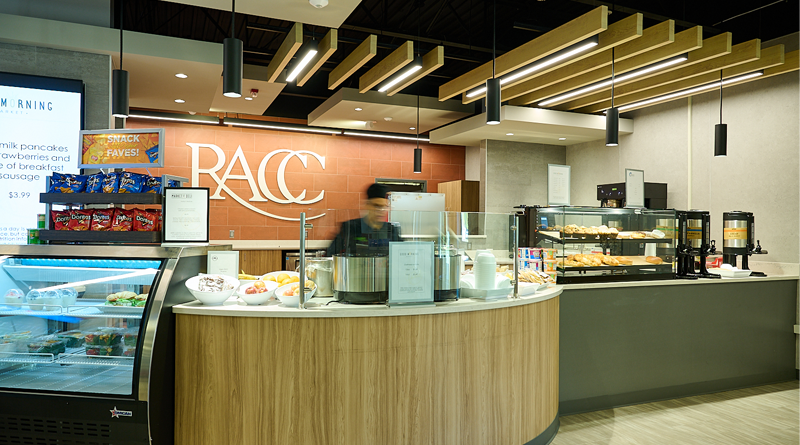MG Provides Revamps to Pennsylvania Community College
By Eric Althoff
READING, Pa.—MG Architects has tackled a trio of renovation projects at Pennyslvania’s Reading Area Community College, where nearly 5,000 students take classes.
Firstly, MG was charged with updating toilet facilities on the first floor of Berks Hall, as well as others in Wetiz and Kratz Halls. Working with general contractor Purcell Construction, MG needed to work to bring the restrooms up to ADA compliance. Necessary upgrades included new lights, tile flooring, countertops, plumbing fixtures and privacy partitions. The tile configurations presented a unique challenge, according to information provided to SCN by MG Architects. The architect also designed touchless, high-efficiency fixtures.
MG provided such services as interior design, compliance review, building systems engineering and construction contract administration. All of this work at the various restrooms came with a reported price tag of over $1 million all told.
The architect reports that RACC also charged the company with updating its cafeteria to make it one that reflects “a new service model focused on made-to-order, grab-and-go meals, coffee bar and retail snacks.” MG accomplished this by consulting with Canteen USA to refashion food delivery in the Berks Hall cafeteria. Their redesign aesthetic featured an open-space concept for both food preparation as well as retail.
Together with general contractor SMJ, MG also designed a new lounge and booth seating area. All of this work carries a price tag of some $400,000, and had to be undertaken on a rather tight schedule, according to MG.
A third renovation project at RACC entails increasing wayfinding signage for students and visitors to the campus alike. This has come about thanks to a master plan that identified several deficiencies in the college’s signage, and suggested remedies to optimize on-campus navigation. RACC held a design competition, and selected MG thanks to its earlier work at the school.
According to information provided by the architect, updating the signage will allow for “cohesive campus branding” as well as make the campus’s entrance at Second and Penn Streets far more visible. This was also important given the campus’s proximity to the Penn Street Bridge, the main point of entry into the city of Reading itself.
“Developing design concepts that meet RACC’s vision and identifying signage locations for public visibility” was of particular importance for the school’s future, as Brad Blankenbiller, MG’s head design technician and project manager, said of the designer’s work on the wayfinding project.
Phase 1 of the signage updates is complete, with Phase 2 currently underway thanks to general contractor Uhrig Construction. Other signage work has been completed by contractor Forman Signs. All told, the signage work will cost under $1 million.

